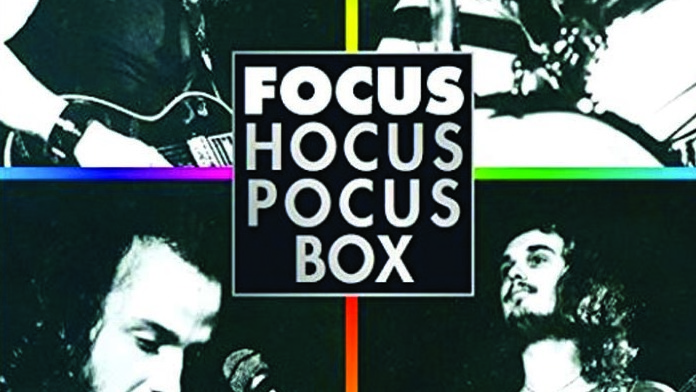The deployment of Hocus Pocus in recent film Baby Driver reminded everyone how exhilarating Focus’ unlikely 1973 hit was and is: yodelling, flute riffs and all. Their follow-up that year, Sylvia, is arguably even more effective, with Jan Akkerman’s guitar driving like a grown-up, though fans of the art of the yodel are still catered to, albeit briefly. Even in that curious period of the early 70s where anything went, Focus seemed an oddity, an anomaly, a law unto themselves. As years have passed, the Dutch band have found a niche as jazz-influenced progressive rock stalwarts. Despite a hiatus and break-up or two, they’re still very much active: indeed, a new album emerges this month.
Here, however, is their career anthology: a 13-CD box set gathering all their essential albums, right up to 2012’s so-so Focus X and throwing in an extra Best Of (which zooms in on shorter, more instant tracks). It’d be a diehard devotee who’d claim the group have improved over time, but there’s no disputing the originality and sumptuous musicianship of their 70s heyday. The Amsterdam instrumentalists – they soon realised vocals weren’t their strong suit, bar the odd yodel – hit on a confident, consummate style which matched the epic and the downright groovy. Their golden age produced soundscapes of light, shade and colour. Thijs Van Leer’s keyboards and flute and Akkerman’s versatile guitar just require solid rhythms – which they get – and away they go, attempting everything from lengthy symphonic suites to power-grabbing jams.
In And Out Of Focus, the 1970 debut, reveals in stand-out Anonymus that they aspire to beauty as much as ballast. Moving Waves (a UK Number 20) gave them their crossover, with Hocus Pocus contrasted with 23-minute prog endeavour Eruption, based on the tale of Orpheus and Eurydice. Eruption is hot lava, but after the fun, accessible Focus 3, they hit their home run on ’74’s Hamburger Concerto. This time the 20-minute “side two” opus is inspired by less lofty themes – the cooking of said burger – but musically it’s just great gushes of joy. Like contemporaries Nektar, they use their non-British experiences to twist the tropes of the genre off the familiar path, yet know when to come roaring back with a big crescendo. From Mother Focus onwards they’re half-heartedly trying funk, losing Akkerman, not quite in the zone. There are fleeting upswings though, and the bizarre collaboration with PJ Proby, 1978’s Focus Con Proby, is like a crazy lost Scott Walker album and will split the trousers of your mind. In their moments of maximum clarity, Focus were fantastic.

